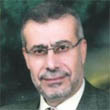The Effects of Noise Pollution on Arterial Blood Pressure and Heart Pulse Rate of Doctors in their Dental Offices in Jenin City - Palestine
Mon, 2015-08-24 09:14 — Prof. Issam Rashid Ashqer
see the full file here
Journal Title, Volume, Page:
International Journal of Medical Informatics 3(1) · February 2015
Year of Publication:
2015
Preferred Abstract (Original):
This
study reports the relationship between occupational noise levels with
arterial blood pressure (systolic and diastolic), and heart pulse rate
for dentists in their offices chosen randomly in Jenin City. The noise
levels measured during operational periods in the chosen dental offices
were found to be between 90.5 and 91.7 dB. The arterial blood pressure
(systolic and diastolic) and heart pulse rate of doctors were measured
before and after exposure to noise for four hours. Positive correlation
(Pearson Correlation Coefficient) with noise pollution was found for all
measured variables. The mean blood pressure, for examples, has
Pearson's Coefficient R = 0.629 for systolic and R = 0.475 for
diastolic. In addition, heart pulse rate has a Pearson's Coefficient R =
0.560. This study shows that after four hours of work, there is a
significant increase in the mean measured values of blood pressure
(systolic and diastolic) and heart pulse rate. The mean of systolic
blood pressure, for example, is increased by 4.4 mm-Hg, while the mean
of diastolic blood pressure is increased by 3.8 mm-Hg. Finally, the
heart pulse rate mean is increased by 3.6 beats/minute.see the full file here

